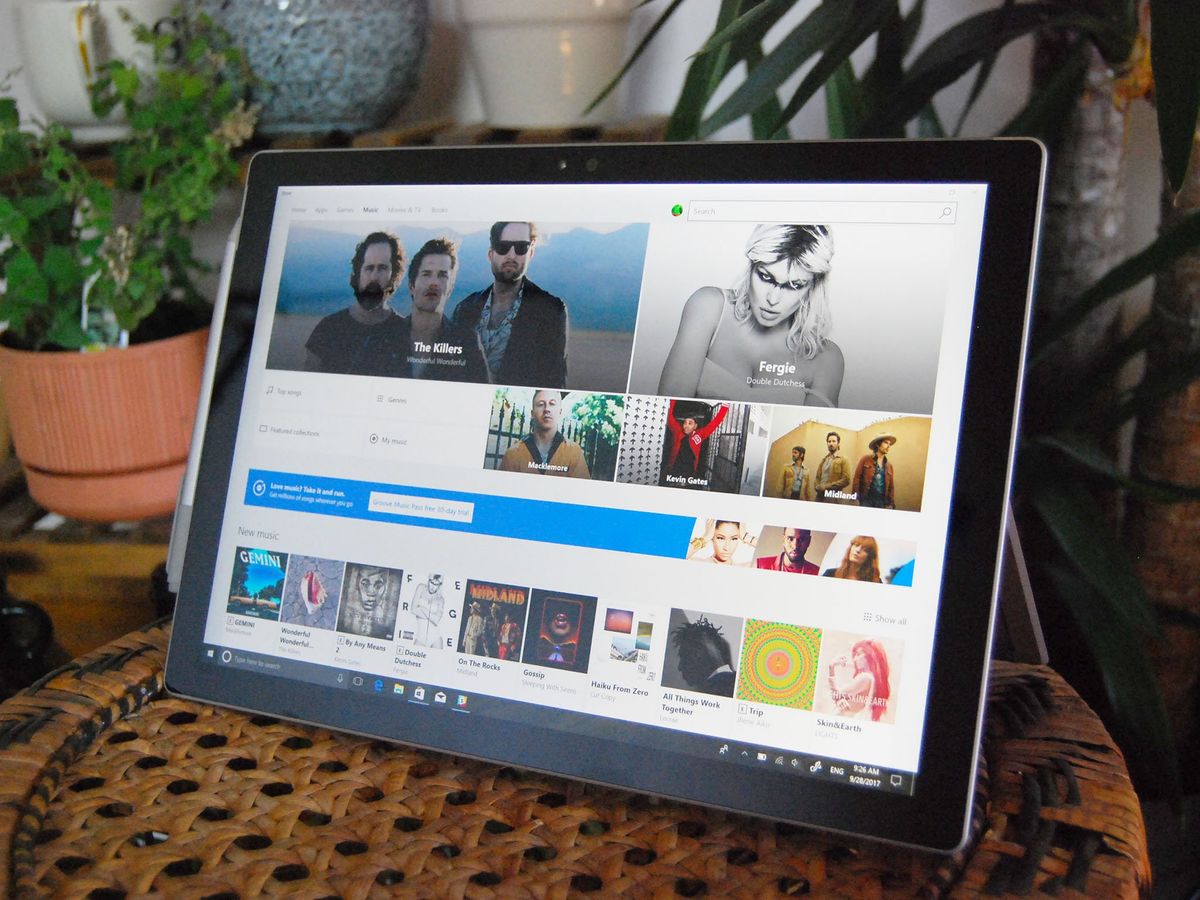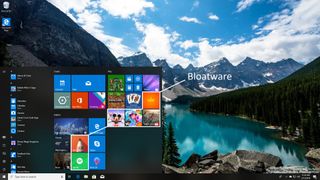Hey, Microsoft, stop installing third-party apps on clean Windows 10 installs!
Microsoft automatically installs six bloatware apps onto every Windows 10 PC, even after a clean install. This needs to stop.


Before Windows 10, a clean install of Windows only included the bare essentials a user would need to get started using their PC. That included software built by Microsoft, such as Mail, Paint, and its web browser, and it never included "bloatware" or "trialware" that one might find on hardware purchased from a third-party OEM that preloaded all kinds of crapware.
The clean install process was simple. With Windows 7, you'd do the install, and once you hit the desktop, that was it. All the programs that were preinstalled were Microsoft-made and were often considered essentials. This changed with Windows 8, with the addition of auto-updating apps such as Travel, News and more. Still, these were acceptable, preinstalled Windows apps and were not really classed as bloatware.
With Windows 10, a clean install stays that way for about two minutes, because the second you hit the desktop, the Microsoft Store immediately starts trying to download third-party apps and games. And these apps keep trying to install themselves even after you cancel the downloads.
Six too many

There are six such apps, which is six too many. These apps are often random, but right now they include things like Candy Crush, Spotify, and Disney Magic Kingdoms. You should not see any of these apps on a fresh install of Windows 10, yet they are there every single time.
There are policies you can set that disable these apps from automatically installing, but that's not the point. On a fresh, untouched, clean install of Windows 10, these apps will download themselves onto your PC. Even if you cancel the installation of these apps before they manage to complete the download, they will retry at a later date, without you even noticing.
The only way I've found that gets rid of them permanently is to let them install initially, without canceling the download, and then uninstall the apps from the Start menu. If you cancel the initial download of the bloatware apps before they complete their first install, the Microsoft Store will just attempt to redownload them later and will keep doing so until that initial install is complete.
This is not a good user experience, Microsoft.
Get the Windows Central Newsletter
All the latest news, reviews, and guides for Windows and Xbox diehards.
In the past, bloatware issues were usually the fault of third-party OEMs, but with Windows 10, bloatware is just as much Microsoft's fault. It may only be six apps that are installing themselves, but that's more than what Apple automatically installs on Macs.
For comparison, I recently did a clean install of macOS High Sierra on a Mac, and that experience was sublime. Once I hit the desktop, I didn't need to go in and start uninstalling extra bloatware that was automatically trying to install itself. All the apps that show up on the OS are Apple-made and not considered bloatware.
This is a new problem for Windows
This never used to be a problem. A clean install of Windows 7 was exactly that. But with Windows 10, a clean install includes apps from third parties, even if I don't want them. This also happens on the Windows 10 Pro edition, not just Home.
Microsoft uses a couple of the Live tiles in the Start menu as advertisements for apps available in the Microsoft Store. These apps look like they're installed, but they aren't until you click the Live tile. I'm not all that bothered about Microsoft using the Start menu to advertise apps in the Microsoft Store, but I cannot stand apps that automatically install themselves.
I'd much prefer if Microsoft treated the six apps that automatically install themselves like it treats the rest of the advertisements in the Start menu; as placeholders. These apps should not download unless I click on them first. We already know Microsoft can do this because it's doing it with Drawboard and Minecraft. The rest, however, just download on their own. And that sucks.
I hope Microsoft is aware of the terrible clean install experience in the latest version of Windows 10, and I hope it changes the behavior so apps don't automatically install unless they're Microsoft made. That would make for a much better experience for people who often do clean install Windows.
